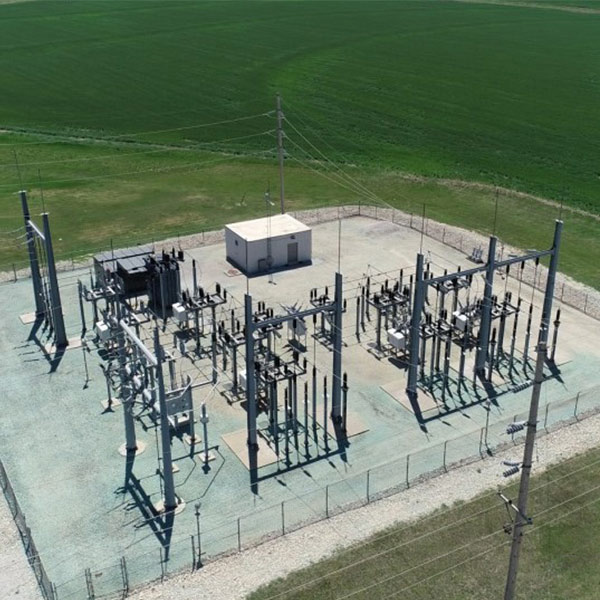FERC revoked Tri-State's market-based rate authority in the Western Area Power Administration's Colorado-Missouri balancing authority area.
FERC last week revoked Tri-State Generation and Transmission Association’s market-based rate authority in the Western Area Power Administration’s Colorado-Missouri balancing authority area (WACM), but it found the cooperative may retain that authority in other BAAs (ER20-681, EL22-28).
The commission said information provided by Tri-State “failed to rebut the presumption of market power” in WACM. “As a result, we find that it is not just and reasonable for Tri-State to continue to have market-based rate authority in the WACM balancing authority area,” it said.
The data showed consistent screen failures across measurements, season/load periods and price sensitivities in the BAA, FERC said. It directed the cooperative to submit within 30 days a revised market-based rate tariff limiting sales at market-based rates to areas outside of WACM in which it retains MBRA.
The commission also ordered Tri-State to respond with a separate tariff to provide for the default cost-based rates in WACM or to make clear its intent to use its current cost-based tariff on file.
FERC opened an investigation into Tri-State under Federal Power Act Section 206 after it submitted its triennial updated market power analysis and a change-in-status notice last December.
The commission allows power sales at market-based rates if the seller and its affiliates do not have, or have adequately mitigated, horizontal and vertical market power. An applicant that fails one or more of the indicative screens is provided with several procedural options, including the right to challenge the market power presumption by submitting a delivered price test (DPT). However, the revised DPT indicated the consistent screen failures.
FERC did find that Tri-State passed the horizontal market power indicative screens for the Public Service Company of New Mexico and Public Service Company of Colorado BAAs and CAISO’s Western Energy Imbalance Market.
Commission Rejects SPP Tariff Revision, Reversing ALJ Decision
The commission on Thursday also rejected SPP’s proposed tariff revision to include an annual transmission revenue requirement (ATRR) for certain GridLiance High Plains facilities in Oklahoma’s Panhandle, affirming in part and reversing in part a decision by an administrative law judge in hearing and settlement procedures (ER18-2358).
FERC said that SPP’s 2018 filing to revise the tariff and allow recovery of the ATRR for GridLiance’s facilities was unable to prove the change was just and reasonable. It said that in protesting the filing, Xcel Energy Services was able to show “adequate evidence” that the facilities should be declassified as transmission under the commission’s seven-factor test.
 FERC rules GridLiance’s Oklahoma facilities do not qualify for rate recovery. | GridLiance
FERC rules GridLiance’s Oklahoma facilities do not qualify for rate recovery. | GridLianceXcel also said GridLiance’s inclusion of its Oklahoma Panhandle facilities in its ATRR would result in a cost-shift to its Southwestern Public Service subsidiary, which shares the same transmission pricing zone (Zone 11). (See GridLiance, Xcel Battle over Tx Qualifications.)
The commission reversed an ALJ decision last year that the transmission facilities were eligible for recovery in transmission rates under SPP’s tariff. FERC directed GridLiance and SPP to issue refunds within 45 days to customers in GridLiance’s ATRR in Zone 11.
“We find, among other things, that … SPP and GridLiance failed to meet their burden to prove by a preponderance of the evidence that the GridLiance facilities are transmission facilities eligible for recovery,” the commissioners wrote.
FERC said that because it resolved the case’s central issue, it did not reach the merits of the rate impact, cost causation, prudent decision-making, and other arguments raised by Xcel and other intervenors.
The commission also dismissed a pair of Xcel’s formal challenges to GridLiance’s 2021 and 2022 annual formula rate updates as moot, citing the 2021 order over Xcel’s previous informal contention that GridLiance’s inclusion of the Oklahoma assets’ costs in its updates was improper (ER21-1438, ER22-1353).
It said that given the decision in the earlier proceeding and GridLiance’s implementation of the Zone 11 ATRR in the 2021 and 2022 annual updates, Xcel’s formal challenges were moot.
Just Energy OK’d for MBRA
FERC also granted power marketer Just Energy’s authority to make wholesale sales of energy and capacity at market-based rates and found it met the criteria to be a Category 1 seller in all regions (ER22-2044, ER22-2044-001).
The commission determined that because Just Energy does not own or control generation or transmission facilities, it satisfies FERC’s requirements for market-based rates regarding horizontal and vertical market power.
The ruling allows Just Energy to supply retail power in competitive markets, as one affiliate already does in ERCOT. It will contract with third parties to procure supply for its other affiliates and to provide them scheduling, settlement and bid/offer submission services once it registers with grid operators.




